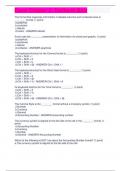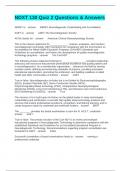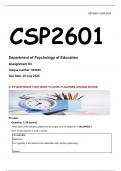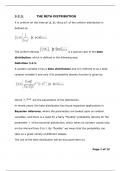RESOLUTION PART II
LECTURE 7
INTRODUCTION
What distinguishes the class proceeding from ordinary litigation is its representative nature. Litigation
usually binds only the parties named in the suit. In a North-American style class proceeding, however,
persons not named in the lawsuit are bound by its result merely by virtue of falling within the definition of
the class. Canada and the U.S. have (the Netherlands has an awkward procedural collective action device
as we will discuss in class) “opt-out” class actions meaning that everyone within the definition of the class
(e.g. all people who purchased X security between Y and Z dates; all people who suffered any of the injuries
listed here after taking drug Q for more than two weeks) is bound by the class outcome – whatever it is, but
typically framed in a class settlement – unless they inform the court that they wish to be excluded. Opt-out
class actions create the potential for class members to lose rights to bring claims and receive remedies
without realizing that; therefore, jurisdictions with opt-out regimes usually require substantial publicity to
inform class members that a class action is pending. Notice may be individualized (e.g. letters to cell-phone
subscribers) or provided via mass media. The ability to opt in or opt out of a class action will be discussed in
this session together with the concept of representation, with particular attention to the role and duties of
the representative plaintiff and who has standing to file a class or collective action.
OBJECTIVES
• Become familiar with the approach to standing in class actions in North-American jurisdictions and
with the issues surrounding that approach.
• Develop an understanding about the role and duties of the representative plaintiff acting in the
North-American setting.
• Be able to compare and contrast the North-American approach of representation by a group
member with the ‘organizational approach’ that one finds in most civil law jurisdictions.
READING
Canada/Ontario
1. Ontario, Class Proceedings Act, 1992, S.O. 1992, c.6, s 5(1)(e)
, 2. Singer v. Schering-Plough Canada Inc, 2010 ONSC 42, paras. 208-229 [on the role of the rep plaintiff]
3. Robinson v. Rochester Financial Limited, 2012 ONSC 911, paras. 26-44 [compensating the rep
plaintiff]
The Netherlands
4. WCAM: text Dutch Act on Collective Settlements (translation available on BlackBoard)
5. Text Dutch Collective action: art. 3:305a of the Dutch Civil Code (translation available on Blackboard)
Germany
6. A. Halfmeier: “Litigation without end? The Deutsche Telecom case and the German approach to
private enforcement of securities law”, in: Hensler a.o., Class actions in context, Edward Elgar 2017
(available on Blackboard).
READING: Ontario, Class Proceedings Act c.6, s 5(1) (e)
Certification
5 (1) The court shall certify a class proceeding on a motion under section 2, 3 or 4 if,
(a) The pleadings or the notice of application discloses a cause of action;
(b) There is an identifiable class of two or more persons that would be represented by the representative
plaintiff or defendant;
(c) The claims or defenses of the class members raise common issues;
(d) A class proceeding would be the preferable procedure for the resolution of the common issues; and
(e) There is a representative plaintiff or defendant who,
(i) Would fairly and adequately represent the interests of the class,
(ii) Has produced a plan for the proceeding that sets out a workable method of advancing the proceeding on
behalf of the class and of notifying class members of the proceeding, and
(iii) Does not have, on the common issues for the class, an interest in conflict with the interests of other class
members. 1992, c. 6, s. 5 (1).
READING: Robinson v Rochester Financial Limited, 2012
[26] Class counsel have made a request for compensation in the amount of $5,000 for each of the
representative plaintiffs, relying on the authority on the basis that the plaintiffs have rendered “active and
necessary assistance” in the prosecution of the case. I set out the principles applicable to this request at
para. 93: The payment of compensation to a representative plaintiff is exceptional and rarely done. It
should not be done as a matter of course. Any proposed payment should be closely examined because it
, will result in the representative plaintiff receiving an amount that is in excess of what will be received by
any other member of the class he or she has been appointed to represent: McCutcheon v. Cash Store Inc.
[2008] That said, where a representative plaintiff can show that he or she rendered active and necessary
assistance in the preparation or presentation of the case and that such assistance resulted in monetary
success for the class, it may be appropriate to award some compensation: Windisman v. Toronto College
Park Ltd., [1996]. Class counsel says that this is one of those exceptional cases in which compensation
should be paid. As I have noted, class counsel faced considerable apathy on the part of class members and
it was exceedingly difficult to find someone prepared to take on the role of representative plaintiff until Mr.
and Mrs. Robinson stepped up to the plate.
Taking on that role required that they expose private personal financial information, including their income
tax returns for the years they participated in the Gift Program. They each spent more than 300 hours in
assisting class counsel in the prosecution of the action. In comparison, they will receive a modest award of
about $6,000 under the settlement. Ordinarily, an individual litigant is not entitled to be compensated for
the time and effort expended in relation to prosecuting an action. In my view, there is an important
distinction to be drawn with reference to class proceedings. The representative plaintiff undertakes the
proceedings on behalf of a wider group and that wider group will, if the action is successful, benefit by
virtue of the representative plaintiff's effort. If the representative plaintiff is not compensated in some way
for time and effort, the plaintiff class would be enriched at the expense of the representative plaintiff to
the extent of that time and effort.
In my view, where a representative plaintiff can show that he or she rendered active and necessary
assistance in the preparation or presentation of the case and that such assistance resulted in monetary
success for the class, the representative plaintiff may be compensated on a quantum merit basis for the
time spent. I agree with the American commentators that such awards should not be seen as routine. The
evidence here is that Ms. Windisman took a very active part at all stages of this action. It seems clear that
the case would not have been brought but for her initiative. She assumed the risk of costs and she devoted
an unusual amount of time and effort to communicating with other class members, acting as a liaison with
the solicitors, and assisting the solicitors at all stages of the proceeding. She kept careful records of her
time and effort. [30] In that case, the representative plaintiff had kept docketed time entries showing 81.2
hours of time and estimated a further 25 hours of undocketed time.
Sharp J. awarded compensation of $4,000, to be deducted from the net recovery of the class. [31] This
issue brings into play some conflicting values. On the one hand, we do not wish to create a conflict of
interest between the representative plaintiffs and the class, by giving the former more substantial
contribution. Compensation for representative plaintiffs must be awarded sparingly. The operative word is
that the functions undertaken by the Representative Plaintiffs must be "necessary", such assistance must
result in monetary success for the class and in any event, if granted, should not be in excess of an amount
that could be purely compensatory on a quantum merit basis.
Otherwise, where a representative plaintiff benefits from the class proceeding to a greater extent than the
class members, and such benefit is as a result of the extraneous compensation paid to the representative
plaintiff rather than the damages suffered by him or her, there is an appearance of a conflict of interest
between the representative plaintiff and the class members. A class proceeding cannot be seen to be a
method by which persons can seek to receive personal gain over and above any damages or other remedy
to which they would otherwise be entitled on the merits of their claims. This request is denied.











